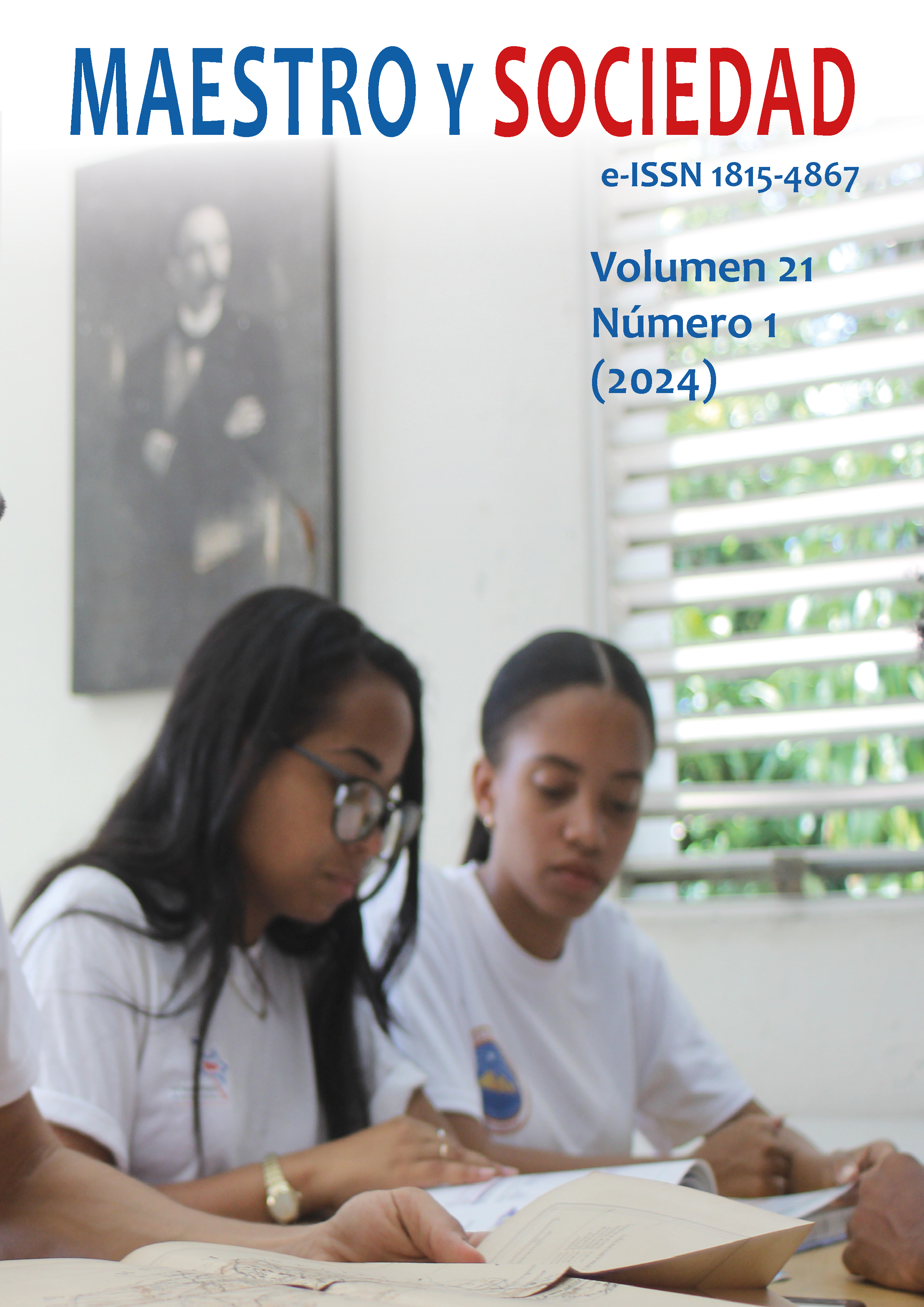Strategy for improving the solution of mathematical problems by fourth grade students of the Nuestra Señora de Fátima School
Keywords:
problems, mathematics, education, fourth gradeAbstract
Introduction: The importance of solving mathematical problems is recognized by the scientific community and the governing documents of the teaching-learning process in the fourth grade of Basic General Education, but difficulties remain that do not favor the best performance of students. Materials and methods: based on them and through the application of theoretical and empirical methods, a strategy for teaching - learning of mathematics was developed, which, taking into account a diagnosis of difficulties in solving mathematical problems by students, develops the contents with an
adequate balance between explanations, exemplifications and cognitive impulses to the students and, the investigative activities and problems (individual and group) that are posed to the students. Results: The strategy is structured into a general objective and four stages: diagnosis of difficulties in solving mathematical problems by fourth grade students of the “Our Lady of Fátima” School, preparation or selection of investigative activities and problems that will be posed
to the students. students and, execution of investigative activities and problems seeking greater independence and creativity of the students. Discussion: In each stage, the actions that allow the achievement of its specific objective
are specified. Conclusions: To carry out an assessment of the impact of the strategy in improving problem solving, two evaluations were carried out on thirty-four students, one initial, before the use of the strategy and a subsequent one, using the qualitative scale that is generally used for the evaluation of learning, but linking said learning to the solution of problems, said scale: masters the required learning (DAR), achieves the required learning (AAR ), close to achieving the required learning (DAR) and does not reach the required learning (NAR).
References
Hernández H., C. M. (2021). Perfeccionamiento de la enseñanza-aprendizaje con enfoque investigativo creativo: acercamiento a fundamentos y contribuciones. Editorial: “Universo Sur”. https://universosur.ucf.edu.cu/?p=2845
Hernández-Hechavarría, C. M. (2018). Problemas a partir de un problema de Olimpiada Internacional de Matemática. Propósitos y consideraciones didácticas. Revista Dilemas Contemporáneos: Educación, Política y Valores, V(2). http://www.dilemascontemporaneoseducacionpoliticayvalores.com
Hernández-Hechavarría, C. M. (2023). Apuntes básicos para la investigación y el mejoramiento de la enseñanza-aprendizaje de la matemática en la escuela. Universidad de Oriente.
Ministerio de Educación. (2016). Matemática 4. Guía del docente. Educación General Básica. Subnivel elemental. Maya Ediciones Cía. Ltda. Ecuador
Ministerio de Educación. (2020). Matemática 4. Texto del estudiante. Educación General Básica. Subnivel elemental. Maya Ediciones Cía. Ltda. Ecuador
Ministerio de Educación. (2021). Currículo priorizado con énfasis en competencias comunicacionales, matemáticas, digitales y socioemocionales. Educación General Básica, subnivel elemental. https://educacion.gob.ec/wp-content/uploads/downloads/2021/12/Curriculo-priorizado-con-enfasis-en-CC-CM-CD-CS_Elemental.pdf
Smit, R., Dober H., Hess K., Bachmann, P. & Birri, T. (2022). Supporting primary students’ mathematical reasoning practice: the effects of formativefeedback and the mediating role of self-efficacy. Research in Mathematics Education, DOI:10.1080/14794802.2022.2062780
Published
How to Cite
Issue
Section
License
Copyright (c) 2024 María Roxana Apolinario Parrales, Maricruz Justina Zamora Vinces, Wilber Ortiz Aguilar, Carlos Manuel Hernández Hechavarría

This work is licensed under a Creative Commons Attribution-NonCommercial-NoDerivatives 4.0 International License.
This journal provides immediate open access to its content, based on the principle that offering the public free access to research helps a greater global exchange of knowledge. Each author is responsible for the content of each of their articles.



























 Universidad de Oriente
Universidad de Oriente 